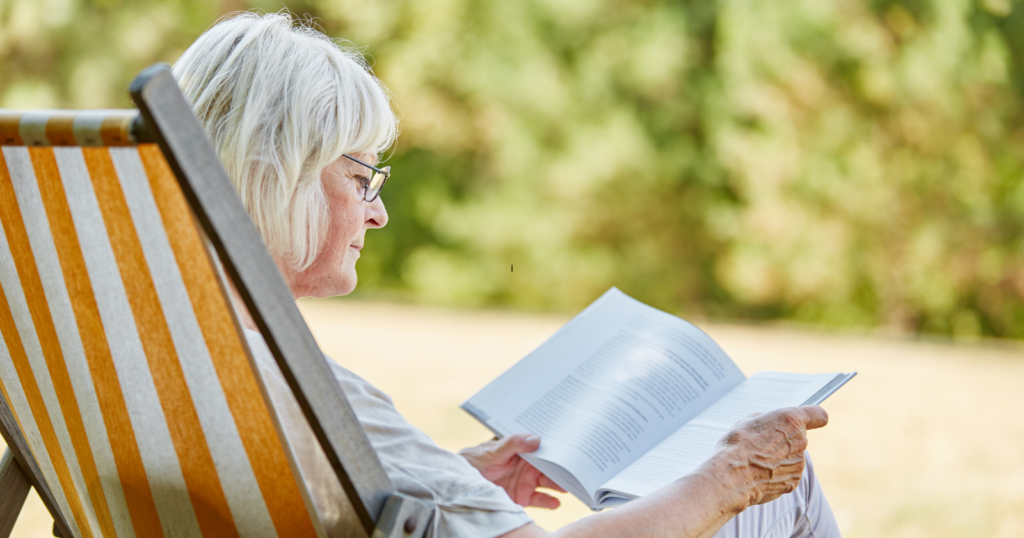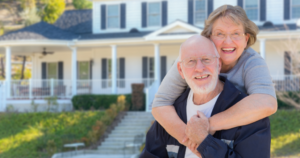There’s something peculiar about how time shifts when you reach your sixties.
The mornings stretch longer. The rush feels less necessary.
And if you’re lucky, you notice things that used to pass you by—like how the light falls through your kitchen window, or how a good conversation can lift your spirits for the rest of the day.
When life slows down, it has a funny way of sharpening your focus.
You start noticing what actually counts.
Not the noise. Not the distractions. But the real stuff. The good stuff.
So, today I want to talk about the things that matter more than ever—not in theory, but in practice.
Things I’ve learned to cherish, lean into, and protect as I’ve stepped into this slower, more reflective chapter.
1. Deep, nourishing relationships
You know, I’ve met a lot of people over the years who made small fortunes, climbed ladders, collected trophies—and still found themselves lonely in the quiet hours of the evening.
That used to puzzle me. Now, it doesn’t.
There’s a mountain of research out there on what makes for a good life, but one finding keeps popping up—and it’s not flashy or complicated.
It turns out that the people who stay happiest and healthiest as they age are the ones with strong, supportive relationships.
The Harvard Study of Adult Development—which has followed people for over 80 years—found that good relationships are the single strongest predictor of long-term happiness and health.
Not the folks with the biggest bank accounts. Not the ones who made the front page.
Just those who stayed close to good people and made time for connection.
I see it in my own life. It’s the Saturday morning walks with my grandkids. The catch-up calls with old friends. The simple pleasure of sitting quietly beside someone who knows you well.
As Dr. Robert Waldinger put it, “Good relationships keep us happier and healthier. Period”.
Now that life’s a little less hectic, make space for those connections.
Let the phone call run a bit longer. Write the letter. Ask someone how they really are—and stay long enough to hear the answer.
2. Protecting your energy
This one took me decades to learn.
When you’re young, it’s easy to believe your energy is endless. You say yes to everything, try to be everything to everyone, and before long, you’re running on fumes.
But as the pace of life naturally slows, you begin to see energy for what it really is—a limited, valuable resource. One that deserves to be spent with care.
These days, I’ve gotten more comfortable saying no. Not out of rudeness, but out of respect—for my time, my health, and my peace of mind.
I no longer feel guilty for choosing quiet over chaos.
Energy is precious. Guard it. Reclaim it.
Use it on the people and moments that truly fill you up.
3. Creating moments of stillness
There was a time when I couldn’t sit still.
Even on weekends, I’d make lists, organize drawers, clean out the shed. Slowing down felt uncomfortable, like I was being unproductive.
But now? Stillness has become a kind of medicine.
I take walks with no destination in mind. I sit on park benches just to watch the ducks. I read slowly, letting the words sink in. Sometimes, I just listen—to the wind in the trees, to my dog Lottie’s soft breathing beside me.
Stillness gives us back our thoughts. Our breath. Our awareness.
As Einstein once said, “The monotony and solitude of a quiet life stimulates the creative mind”.
Try carving out even fifteen minutes a day just to be.
You don’t have to meditate or journal (though you can). Just give yourself permission to slow down and sit in the moment without needing to fill it.
You might be surprised by what rises to the surface.
4. Caring for your body—gently
Look, I’m not perfect and I’m still learning too, but if there’s one thing that’s become non-negotiable in this phase of life, it’s moving my body.
Not punishing workouts. Not chasing some long-lost physique. Just consistent, kind movement.
Research backs this up: Dr. Wendy Suzuki, a neuroscientist, called exercise “the most transformative thing you can do for your brain today”.
It’s not about looking a certain way. It’s about sharper memory, better mood, and more energy for the things that matter.
For me, that’s walks in the park. Light stretches in the morning. The occasional dance around the kitchen with the grandkids.
No pressure, just movement.
If your body allows it, find something that feels good and do it often.
Don’t wait for motivation—build a rhythm. Your future self will thank you.
5. Letting go of the need to prove yourself
When you’re younger, there’s a constant pressure to become something. To prove your worth, climb the ladder, earn the praise.
But as the years go on, that urgency quiets. And what replaces it is a deeper question: Who am I when there’s nothing left to prove?
There’s freedom in reaching the point where you no longer need validation from others to feel good about yourself. You stop performing and start living.
The best part of aging is realizing you get to rewrite your own rules.
You don’t have to hustle for approval. You don’t have to measure your life against someone else’s highlight reel.
You just have to show up—honestly, kindly, and consistently—for yourself and the people you love.
6. Embracing purpose over productivity
In my working years, productivity was king. Every hour had to count. Every task ticked off was a tiny badge of honor.
But now? Now I ask myself different questions: Does this matter? Does this fill me up? Is this meaningful?
As I’ve found, purpose isn’t about grand achievements. It’s about small acts of care.
Planting a garden. Helping a neighbor. Reading stories to a curious five-year-old. Showing up for someone when they least expect it.
This is backed by experts like Dr. Patricia Boyle, who found that having a sense of purpose—especially later in life—is linked to better health and even longer lifespan.
When life slows down, don’t just fill your days with activity. Fill them with meaning.
7. Saying the things that need to be said
Here’s something I’ve learned: regrets aren’t usually about what we did—they’re about what we left unsaid.
When life was busier, I used to assume people knew how I felt. That they understood I cared.
But assumptions don’t build relationships—words do.
So now, I say “thank you” more. I tell my kids I’m proud of them. I leave voicemails that say “I love you” instead of “Call me back.”
Don’t wait for the perfect moment. Don’t save the good stuff for eulogies. Say the things now—while people can hear them.
It’s a simple shift, but one that makes a world of difference.
As life slows down, we’re given a rare opportunity: to pay attention.
To sift through the noise and rediscover what really matters. Not in some abstract, lofty way—but in the everyday choices we make.
So maybe the question isn’t, What should I do now that things are quieter?
Maybe the better question is, What matters enough for me to carry forward?
Final thoughts
Slowing down doesn’t mean giving up—it means waking up to what truly matters.
In the quiet, we start to see the outlines of a life well-lived: deeper relationships, clearer purpose, gentler rhythms, and a stronger sense of self.
I’ve come to believe this: when we stop chasing everything, we finally have space to cherish the right things.
So take a breath. Look around. What’s asking for your attention now—not someday, not next year—but today?
That just might be the thing worth leaning into.
















